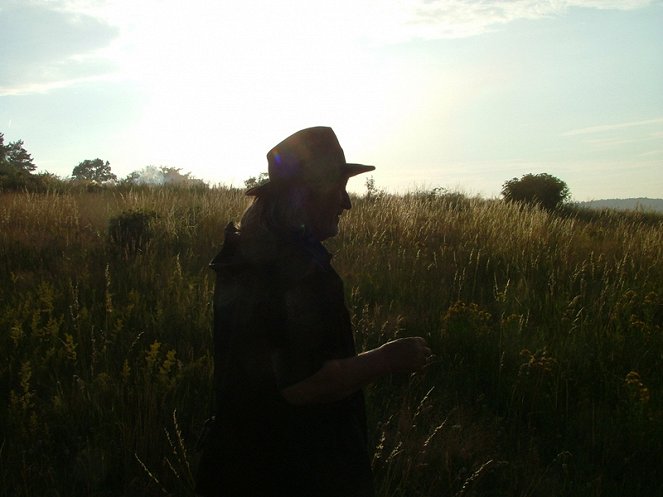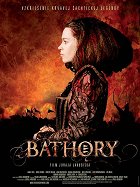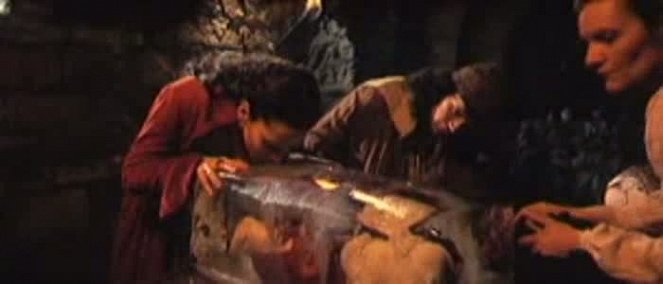Rendező:
Juraj JakubiskoForgatókönyvíró:
Juraj JakubiskoSzereplők:
Anna Friel, Karel Roden, Vincent Regan, Hans Matheson, Deana Horváthová-Jakubisková, Bolek Polívka, Jiří Mádl, Anthony Byrne, Lucie Vondráčková (több)Tartalmak(1)
A hírhedt 16. századi grófnő, Báthory Erzsébet hátborzongató történetét sokan feldolgozták már: történészek, írók, költők, drámaírók, zeneszerzők, festők és filmesek próbálták leírni és megjeleníteni az elképzelhetetlent. Báthory Erzsébet az emberiség legvéresebb gyilkosaként szerepel a Guinness Rekordok Könyvében. A legenda szerint többnyire nők estek áldozatul a grófnő kegyetlenségének: megkínozta és megalázta őket, kiontott vérükben fürdött, fogaival tépte szét az áldozatok eleven húsát, majd végzett velük. De valóban ez történt a grófnő várában? Az eltelt négy évszázad alatt semmilyen történelmi dokumentum nem került elő, ami mindezt egyértelműen igazolná. A film a hagyományos elképzelésektől eltérő módon ábrázolja a grófnő alakját. A történet egy védtelen özvegyről szól, aki gazdagabb és sokkal nagyobb vagyonnal rendelkezik, mint maga a király. Báthory Erzsébet modern gondolkodású, reneszánsz asszonyként szerepel a filmben, aki egy összeesküvés áldozatává válik. (Jakubiskofilm)
(több)Videók (10)
Recenziók (9)
Bensőséges, meghitt pillanatokban hatásos, és a főszínészek által nagyon jól eljátszva. A nagy jelenetekben azonban nevetséges, és a szép külső operatőri munka csak-csak ellensúlyozza az olcsó belső tereket. Figyeljétek meg azt is, hogy a statiszták néha grimaszolnak... ejha. És amikor nem tudom, merre menjek, mert a történetemnek nincs dramaturgiai váza, akkor úgymond három fázisra osztom, és így adok neki értelmet... ejha. Pontosan olyan (tévés optikával elrontott) csehszlovák "nagyfilm", ahogyan az várható volt. Juraj Jakubisko pedig annyira inspiráló és szimpatikus ember és művész... De Báthory a Cronenberg számára való anyag, nem pedig egy szlovák költői mesemondó számára.
()
Lots of people criticize Jakubisko for choosing his own path and not following in the footsteps of Nižnánský’s novel. But I thank him for that. You see, I am allergic to Jožo’s “Čachtická Paní". Black and white, slap-dash nonsense. On one side terribly mean noblemen who don’t have anything better to do than spend sleepless nights thinking up how best to be mean to regular folks, not forgetting then to share their diabolical plans in a fit of crazy laughter to a poor woman who is of course sensible, moral, always honest and absolutely principled without any blemish on her. All this presented in a style that wouldn’t have gotten an F even in elementary school. Not to speak about the incredible frequency of clichéd sentences like “All around was thick forest and it was so dark that it could be cut with a knife." No, thank you. At least I found Jakubisko’s “realistic" version at least likeable, even though it is still the same legend, just inside out. Here, Elizabeth is portrayed almost like a saint and the only source of evil is Thurzó and his wife. So this has nothing to do with being realistic. Unfortunately Juraj chose to worst possible running time. It’s too short for what he wants to say. And it’s too long for what he should have wanted to say. His approach of including a bit of everything, resulting in nothing in the end just doesn’t work. He should have simply edited out anything that doesn’t directly concern the conflict between Báthory and Thurzó. Leaving everything else for a TV version lasting several hours. Among its strong points, I should certainly highlight the interior camerawork, the music, the costumes and the main cast (primarily Anna Friel and Karel Roden). However, the rest of it isn’t so great. And it’s a shame, because I wouldn’t hesitate to rate the main storyline very highly, while the rest of it (mainly the horrendous post-production dubbing and awful exterior camerawork) deserves barely two stars. And I would give zero stars for the Monks duo, utterly superfluous, combining the Name of the Rose with the ingenuity of the central pair from Stoppard’s play “Rosencrantz a Guildenstern Are Dead". So a little higher than mediocre, hiding a diamond-tipped needle that you occasionally glimpse shining in the corner of your eye, but that immediately disappears again into a rotting haystack.
()
I feel that the script was written by Pat and Mat, or at least they edited it, because such a choppy, confused narrative is something you don’t see every day. The first half was still narratively decent, but it got worse and worse as it went on. The story failed to draw me in, I didn't live with the main character, I was indifferent to her fate, and by the end I was so numb that even if the inventive Polívka and Mádl had constructed a plasma TV, I wouldn't have been snapped out of my lethargy. What I was most worried about – the production design and the cinematography – were quite acceptable by Central European standards, although it is true that the completely polished and ironed costumes of the villagers and Turks looked more like an advertisement for laundry detergent, and fell more into the realm of Troska's fairy tales. 3* for the visuals, the courage to embark on such a monstrous project and the effort to embrace the legend of Countess Bathory in an original way.
()
A major misstep and a cynical mockery of all those who believed the advertising campaign about "the most expensive Czech-Slovak film." And to dryly reply that "you definitely can't see where the money went in the film" is not enough for me this time. The "cleansing" of the legend itself is not bad at all, as Anna Friel is excellent and Karel Roden takes over every scene, but... where the plot requires a few more sentences and two more shots to explain "why and how?", Jakubisko prefers to play lyricist in mono-thematic images of "drug highs" and plenty of nudity. Together with a couple of cameramen, he "paints" the surrounding landscape fantastically, and even in the cheap exteriors of the village he doesn't hold his breath. But then there’s the memory of the battle with the Turks and the viewer is back in the land of Central Europe, where we apparently cannot be as worldly as we would like. Sometimes big shoulders, foreign names, and a big wallet are not enough, which is a pity because I was looking forward to this film.
()
Kindly uninitiated viewers will forgive me, but when I first read several very different books on the subject of Bathory long ago in the year 2000, I came to a similar position to the one Jakubisko presents today in his latest blockbuster. So logically, I'm excited. I see the entire negative media halo around the film as a pure reaction to the endless delaying of release dates and the general hype around the cost, which is none of the audience's business anyway. On November 9, 2009, I finally got the DVD and I can better take stock of my older movie theater experience. My basic understanding of it truly doesn't change. The biggest scarecrows of the project (Mádl and co.) were only cast in supporting roles anyway, and the entire dynamic of the story, which is by the way visually wonderfully sophisticated, is based on Jakubisko's direction and set design, camera work by Ďuriš, Brabec and Kende, music by Jirásek, and costumes by Pecharová. I, of course, appreciate Jakubisková's work for her perseverance and I fell in love with Anna Friel's performance. It made such a strong impression on me that I don't have to deal with the fact that the trio of Roden, Regan, and Matheson doesn't work that well for me. On the other hand, Monika Hilmerová was also excellent and Jakubisko's "discoveries" from Post Coita Pogodová, Greneche, and Elsnerová were absolutely fine. I have had the opportunity to watch all three versions - Czech, Slovak, and English, all the omitted scenes, and my enthusiasm for it only grows stronger. I can't wait for the planned series cut, which I hope will be dominated by Erzsébet Czobor. Moreover, knowing that since the end of the 1950s only B-movies, or at most one decent Hammer horror film, have been made on the subject of the Čachtice legend, I can safely compare Jakubisko's version with Viktor Kubal's magnificent animated film The Bloody Lady and be satisfied.
()
Galéria (60)
Photo © Jakubisko Film Slovakia



Hirdetés